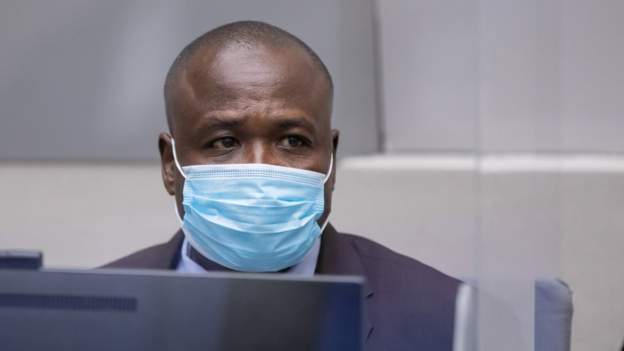
Dominic Ongwen, the Ugandan rebel commander who has just been sentenced to 25 years in jail, was the first former child soldier to be convicted by the International Criminal Court (ICC) – and his case has raised debate over whether he should be treated as a victim or a perpetrator.
He was abducted by the Lord’s Resistance Army (LRA) on his way to primary school in the late 1980s.
It was also the first case in which the issue of sexual and gender-based crimes took center stage at the ICC.
In February, Ongwen was found guilty of sexual slavery, forced marriage, and rape of seven women who were abducted and placed into his household – in addition to murder, attempted, and torture.
His conviction meant that victims could start the process of seeking reparations.
At the height of his time with the LRA, Ongwen was the commander of the Sinia Brigade, and of the fiercest fighters in the rebel movement.
He turned himself into US forces in the Central African Republic (CAR) in 2015 – and they later handed him over to the Ugandan army.
Arrest warrants for the LRA leader Joseph Kony and other top commanders of the movement remain outstanding.
The LRA terrorized Uganda’s north and eastern regions for nearly two decades beginning in the late 1980s, before fleeing to Southern Sudan.
Despite the untold suffering meted out on communities in these regions, the Acholi – Ongwen’s ethnic group – feel strongly that he should have been given the opportunity to go through “Mat Oput”, their form of traditional justice, which involves reconciliation and community reintegration.
Since the war ended in northern Uganda, hundreds of former LRA abductees and fighters have benefited from the government amnesty program and have returned to their homes. Some have gone through Mat Oput.
Mr. Kony and the LRA remain at large and have continued to kill, abduct and loot in CAR, South Sudan, and the Democratic Republic of Congo.
Source: BBC

